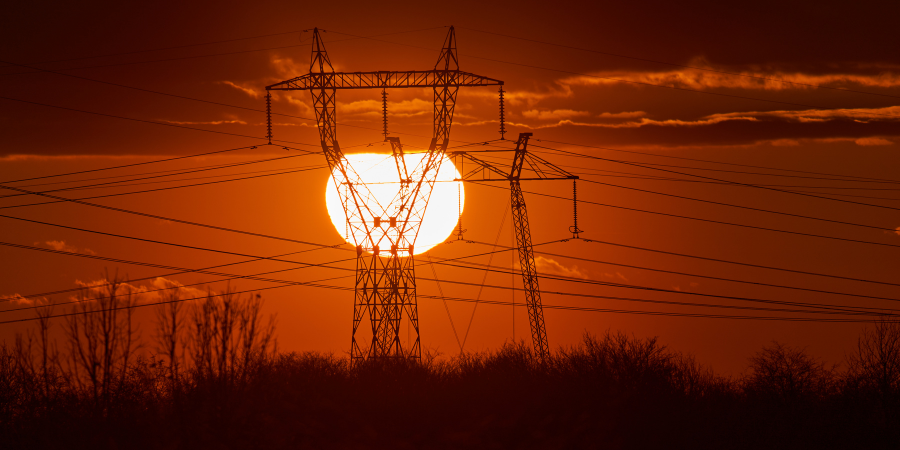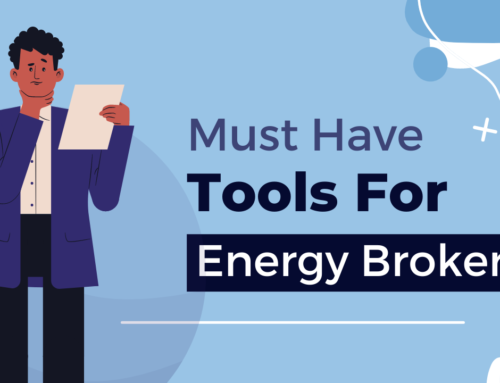What Are The Differences Between Regulated and Deregulated Energy
If you’ve been living in the United States since the 1990s, then chances are you’ve heard about energy deregulation and the history of energy deregulation. Prior to the 90s, most energy utility companies throughout the country were regulated by the government. In other words, these companies were allowed to control a monopoly over their local markets in exchange for government regulation. As energy markets began to deregulate in the 1990s, these utility monopolies were broken up in favor of allowing new energy companies to operate. In this article, we will explore the benefits of energy deregulation and the differences between regulated and unregulated markets.
What Is Regulated Energy?
In a regulated energy market, local utility companies control a monopoly. Customers in these markets have no choice but to purchase their energy from the local utility, and these companies produce, sell, and distribute energy to the community. Many states today are still regulated and operate in this manner.
What Is Deregulated Energy?
Deregulated energy markets, on the other hand, operate much differently. In a deregulated market, utility companies still play an integral role. In fact, utilities in deregulated markets still own local power and gas lines and are responsible for energy distribution and delivery. In most deregulated energy markets, the utility company still offers a rate for energy to its customers.
In these markets, however, customers have options and are not required by law to buy their energy from the utility company. In fact, customers living in deregulated energy markets can purchase electricity or natural gas from third-party energy suppliers.
Differences Between Regulated And Deregulated Energy Markets
There are a few key distinctions between regulated and deregulated energy markets. If you have lived in both a regulated state and a deregulated state, then you know that they are not similar. Businesses located in both of these markets, also experience many differences in the utilities. Here are some of the top differences between regulated energy markets and deregulated energy markets:
Wholesale Energy Markets
In most regulated energy states, there is not a wholesale energy market the same way there is in a deregulated energy state. Because the utilities control everything in regulated markets, there is no need for a free-trading wholesale market. In fact, utilities are allowed through regulation to recover stranded costs as they develop new infrastructure and generation. Deregulated states, on the other hand, have wholesale markets where electricity and natural gas trade as commodities. These wholesale electricity markets are governed by Regional Transmission Organizations (RTOs) and Independent System Operators (ISOs) who manage transmission networks and balance supply and demand throughout the system.
Billing Options
In regulated markets, customers receive one bill for energy from their local utility company. That bill is straightforward and the customer pays whatever the regulated rate is for that particular period. In deregulated markets, however, billing is quite different. Not only can supplier rates appear on a local utility bill, customers can elect to receive a dual bill from the energy supplier. Customers have a lot more choice and flexibility around their billing terms, price structures, and supplier contract language.
Consumer Choice
Most importantly, the major difference between regulated and unregulated markets is the ability for consumers to choose their energy provider. In regulated states, consumers have no choice as the local utility owns the monopoly in the market. In deregulated energy markets, consumers can choose among many energy providers. In fact, in states like Texas, consumers have no other option than to choose a provider. Texas customers cannot elect to remain with the local utility company, they must sign up with an electricity supplier.
Impact On Businesses
Both of these types of energy markets have a big impact on businesses and how they operate. And, there is a heated debate whether or not energy deregulation is good for businesses. If you have a business in a regulated state, you must turn to alternative ways to try and control your energy costs. Because you are at the mercy of the utility company’s rates, the only way to reduce costs is to reduce usage through energy efficiency projects.
Deregulated State Businesses
Businesses located in deregulated energy markets can choose their commercial energy provider, so now they have many decisions to make. What is the right type of plan for the business? How can I find the lowest commercial electric rate? How long should I lock in a fixed energy rate? Should I stay with the utility company or choose a provider? These many decisions and more can make it difficult for businesses in deregulated states. Many businesses located in deregulated energy states elect to utilize the energy services of a broker or consultant to help them navigate the market.
- Multiple supplier options
- Flexible pricing structures
- Multiple billing options
Regulated State Businesses
For those businesses located in regulated states, control over energy pricing becomes difficult. While regulated utilities tend to have more rate tariff schedules available to their customers, the business must purchase electricity at the regulated utility rate. Many of these regulated state businesses elect to utilize the services of a utility bill audit firm to identify additional on-bill savings opportunities.
- No energy choice
- Some options through regulated tariffs
- Limited negotiation
If you operate a larger business with locations in both regulated and deregulated states, then you will most certainly see the differences between the markets. Many of our national customers with multi-site locations tell us there are two main differences between their locations in these various markets:
- Regulated locations view utilities as a uncontrollable cost of doing business
- Deregulated locations are more focused on ways to reduce utility costs
Impact On Energy Brokers
These types of energy markets also have an impact on licensed energy brokers and the way they conduct business. Since most energy brokers are in the business of selling electricity and natural gas, they solely operate in deregulated states. When new states pass legislation to deregulate, this opens up much opportunity for these energy brokers and energy sales agents. Brokers offer value to customers in deregulated states when they are confused and need help navigating markets and price structures. Choosing an energy broker becomes a daunting task for consumers with many different organizations offering similar services.
Some energy brokers have expanded their services offerings to include other solutions outside of just energy supply. These services can be sold in regulated markets, too. Energy efficiency solutions such as LED lighting retrofits, smart thermostats, and variable drive motors, are great ways to help customers save in regulated states.
Other energy brokerage firms offer utility auditing services that can be very beneficial to customers in regulated states. A utility audit is a service by which the broker looks for overbillings and errors on a customer’s utility statements. In regulated states, there are often various commercial utility delivery rates offered. Sometimes auditors will discover that a commercial customer qualifies for a less expensive rate class with the utility company, saving the customer thousands of dollars.
Here are the roles energy brokers play in deregulated and regulated markets:
| Deregulated Markets | Regulated Markets |
|---|---|
| Supplier Negotiation | Tariff Analysis |
| Price Structuring | Utility Bill Audits |
| Ongoing Price Monitoring | Energy Efficiency |
Energy Price Regulation and Market Competition
In regulated energy markets, utilities control supply, delivery, and pricing, with rates approved by state regulators. Customers pay a set rate and have limited ability to influence costs beyond reducing usage. Most regulated utilities are allowed to earn a fixed rate on capital invested through their rate structures.
In deregulated markets, energy supply is opened to competition, allowing businesses and consumers to choose their energy supplier while the local utility continues to deliver the power. Prices are determined by market conditions, supplier competition, and contract structure rather than a single regulated rate.
Key Differences at a Glance
| Issue | Regulated Energy Markets | Deregulated Energy Markets |
|---|---|---|
| Consumer Choice | No supplier choice; utility provides all services | Customers can choose among competing energy suppliers |
| Pricing Structure | Rates set by state regulators | Prices driven by wholesale markets and competition |
| Contract Flexibility | Little-to-no flexibility | Multiple contract types and term lengths available |
| Billing | Consolidated, single utility bill | Consolidated and dual billing |
| Customer Benefits | Simplicity and price stability | Cost control, customization, and strategic savings opportunities |
Pros and Cons of Energy Deregulation
Energy deregulation offers meaningful advantages, but it also requires informed decision-making. Below is a balanced overview of its benefits and challenges.
Pros of Energy Deregulation:
- Increased supplier competition can lead to lower prices
- Greater contract flexibility to align with budget and risk tolerance
- More transparency into energy costs and market conditions
- Opportunity for businesses to actively manage energy spend
Cons of Energy Deregulation:
- Exposure to market volatility without a proper strategy
- Complex pricing structures that require professional guidance
- Requires market knowledge to optimize decisions
- Poorly timed contracts can lead to missed savings opportunities
- Uninformed customers are subject to energy scams and fraud
Frequently Asked Questions
What does regulated vs deregulated energy mean?
Regulated energy means the local utility controls energy supply, delivery, and pricing, with rates set by state regulators. Deregulated energy separates supply from delivery, allowing consumers and businesses to choose their energy supplier while the utility continues to deliver the power.
Is deregulated energy better for consumers?
Deregulated energy can be beneficial for consumers who want more control over pricing and contract terms, but it is not automatically advantageous. It offers choice, flexibility, and the potential for savings; however, without market awareness or guidance, consumers may be exposed to price volatility or unfavorable contract timing.
Why do some states stay regulated?
Some states remain regulated to prioritize price stability and reduce customer exposure to market volatility. Regulators in these states may believe the centralized utility model better protects consumers, particularly residential customers.
How does deregulation affect energy brokers?
Energy deregulation creates opportunities for energy brokers to help customers navigate supplier options, pricing structures, and supplier contract language. Brokers play a key role in educating customers, comparing offers, and developing procurement strategies that align with budget and risk goals.
Want To Learn More?
If you are interested in learning more about regulated and unregulated commercial energy markets, you’ve come to the right place. Our team of expert energy advisors have been working with customers in deregulated and regulated energy markets for over a decade. In fact, we have several services and energy solutions we can offer customers, no matter where they are located. Contact us today to learn more.



